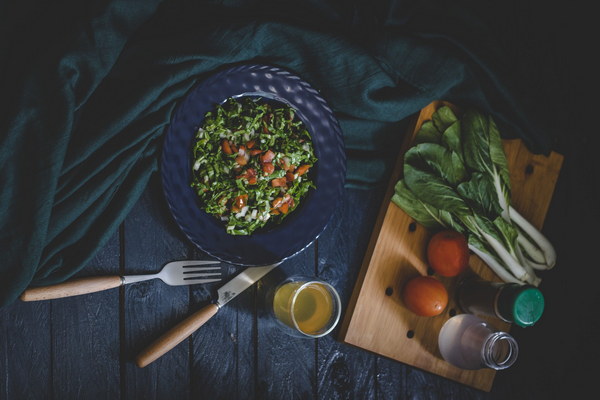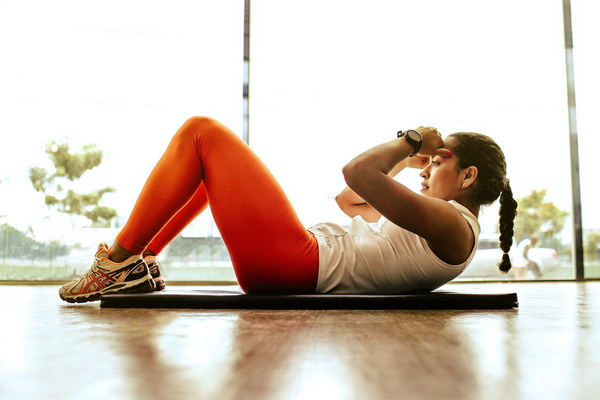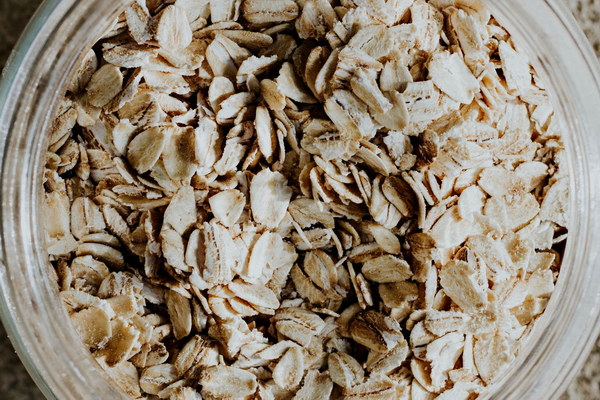Breath of Fresh Air A Comprehensive Guide to Lung Care for Women in Their 30s
In their 30s, women often find themselves in the midst of life's busiest phases, balancing work, family, and personal aspirations. Amidst the hustle and bustle, it's easy to overlook the importance of taking care of our lungs. As we age, our lungs can become more susceptible to respiratory issues. Here's a comprehensive guide to lung care for women in their 30s, focusing on how to nourish and protect your lungs to ensure a healthy respiratory system.
1. Quit Smoking and Avoid Secondhand Smoke
One of the most effective ways to keep your lungs healthy is to quit smoking or avoid secondhand smoke. Smoking is a leading cause of lung cancer and other respiratory diseases. For those who have already quit, it's essential to stay away from secondhand smoke, as it can also damage your lungs.
2. Exercise Regularly
Physical activity helps improve lung function and can strengthen the respiratory muscles. Engage in activities like brisk walking, jogging, cycling, or swimming to increase your lung capacity. Aim for at least 150 minutes of moderate aerobic exercise or 75 minutes of vigorous aerobic exercise per week.
3. Practice Deep Breathing Exercises
Deep breathing exercises can help increase lung capacity and improve oxygen intake. Try the following techniques:
- Alternate Nostril Breathing: Inhale through your left nostril while gently pressing on your right nostril. Hold for a few seconds, then exhale through your right nostril while pressing on your left nostril. Repeat 10 times.
- Diaphragmatic Breathing: Lie on your back and place your hands on your abdomen. Inhale deeply, allowing your stomach to rise. Exhale slowly, pressing your hands down. Repeat 10 times.
- Box Breathing: Inhale for four seconds, hold your breath for four seconds, exhale for four seconds, and hold your breath for four seconds. Repeat for 10 cycles.
4. Maintain a Healthy Diet
A well-balanced diet can support lung health. Include foods rich in antioxidants, vitamins, and minerals to strengthen your immune system and reduce inflammation. Some beneficial foods include:
- Fruits and vegetables: Berries, spinach, kale, and carrots are great sources of antioxidants.
- Nuts and seeds: Almonds, walnuts, and flaxseeds contain omega-3 fatty acids, which can help reduce inflammation.
- Lean proteins: Turkey, chicken, and fish provide essential amino acids for lung repair.
- Whole grains: Brown rice, quinoa, and whole wheat bread can improve gut health, which is linked to better lung function.
5. Manage Stress
Chronic stress can weaken your immune system and make you more susceptible to respiratory infections. Practice stress-reducing techniques like meditation, yoga, or deep breathing exercises to keep your lungs healthy.
6. Stay Hydrated

Drinking plenty of water helps maintain the health of your respiratory system. Water aids in the production of mucus, which helps to trap and expel foreign particles from your lungs. Aim for at least eight glasses of water a day.
7. Get Regular Check-ups
Visit your healthcare provider regularly to monitor your lung health. They can perform spirometry tests to assess your lung function and provide guidance on maintaining your respiratory health.
8. Avoid Pollutants
Minimize your exposure to harmful pollutants, such as dust, mold, and chemical fumes. Use air purifiers in your home and workplace, and keep your living and working spaces well-ventilated.
By following these tips, women in their 30s can take proactive steps to nourish and protect their lungs. Remember that lung care is a lifelong endeavor, and maintaining a healthy respiratory system can lead to a better quality of life. Take the time to prioritize your lung health, and breathe easy knowing you're taking the right steps to protect your lungs.









